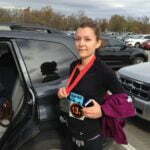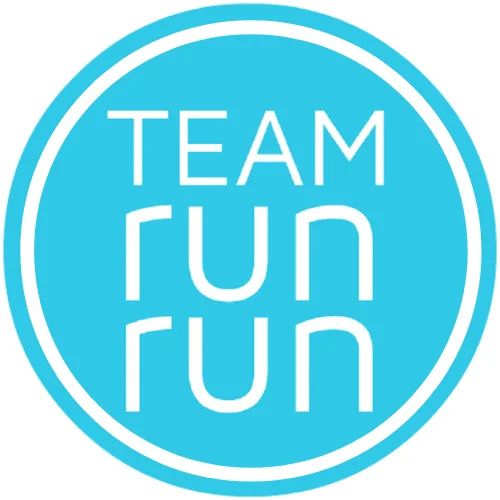We’ve all heard about Intermittent Fasting as a fad diet trend. Based on the practice of eating only during a certain window of time – or on certain days of the week – and fasting the rest of the time, IF elicits thoughts of deprivation diets and serious bouts of “hanger”.
The reality, however, is that – unlike some trends such as the blood type diet or the raw food diet – intermittent fasting is a pattern of eating that has been around for centuries. Fasting is a common practice for most major world religions – from Buddhism to Christianity to Taoism, fasting has been utilized as a means by which to demonstrate discipline and sacrifice since well before the raw food diet or keto became common fads.
For many of us today, however, IF is seen as a tool to promote weight loss. Moreover, if done right, IF can improve health in multiple ways, including decreased inflammation, decreased risk of type 2 diabetes, and reduced occurrence of sleep apnea. There are a lot of resources out there discussing the benefits of IF, but perhaps the biggest selling point for IF is that there are multiple ways to do it. 12 hours fasting/12 hours eating, 14 hours fasting/10 hours eating, 16 hours fasting/8 hours eating, fasting 2 days of the week, and so on and so forth. Anyone investing in IF as a practice can play around with their eating vs. fasting ratios to find the one that works best for them, lending the practice a certain flexibility.
Now, on to the REAL question: should runners try IF or not? A bit of bait and switch with the title of this blog, as I’m not here to tell you whether or not you should try it. Yes, I’m a running coach, and yes, I’m a certified nutrition coach, and yes, I’m a 70+ miles/week runner myself and I practice IF. But huge disclaimer here: I am NOT a medical doctor, so if you are considering IF, see your GP first. Because everyone is different, everyone’s body will respond to IF differently, and there are certain medical conditions that make IF either feasible or specifically not recommended.
All of this said, I have been doing IF for many years now and have learned some valuable lessons about what does and does not work. I didn’t start IF with conscious intention. Instead, as someone who’s never been big on breakfast, I found that I simply wasn’t hungry until later and later in the day. It started on roughly a 14/10 pattern – fasting for 14 hours and eating over the course of 10 hours. Gradually, my fasting period increased as I found that I was comfortably not hungry until later and still later. And for the past 2 years or so, I’ve roughly followed a 18/6 pattern – fasting for 18 hours and limiting my eating window to 6 hours. I do consume coffee with milk during the “fasting” time, so by its strictest definition, I’m not technically fasting. But my body is conditioned at this point to not really feel hunger until 1 or 2pm.
I’ve been asked by friends and clients HOW I do it. I am a morning runner, logging 10-12 miles every morning by 8:00am, and then not eating for 5-6 hours after my last mile. I recognize that this is counterintuitive, hence my refusal to give a strong recommendation either way where IF is concerned. And yet it works for me. I have noticed that I’m less hungry overall and rarely feel the need to overeat – unless there’s wedding cake in front of me, in which case all bets are off. I don’t practice IF for the purpose of weight loss, as the 70+ miles I run every week takes care of that, but I can definitely see how IF can help shed unwanted pounds.
What I will say is this: if you decide to try IF, ease into it. In other words, don’t jump straight into a 18/6 pattern – you’ll be a hangry monster in no time, in addition to annoying a lot of people unlucky enough to be around you. But if you start with a more feasible pattern – say 12/12, for example – and like how you feel, shift your pattern in increments. Small changes are far more likely to create success. Otherwise, a few important guidelines I’ve learned over my years of practicing IF:
- Water does NOT count – make sure you are drinking enough water even during your fasting period. Your body can survive for quite some time without food. Water is life.
- If you feel faint at any time or notice your energy levels drop precipitously while fasting, ease back on your restrictions. As I said, IF isn’t for everyone, so listen to your body.
- Make that first meal count. By the time you end your period of fasting, your body is primed and ready for fuel. Plan ahead so you don’t reach for the first muffin or cheeseburger you see. Remember: the health benefits of fasting are negated if the food you do eat is nutritionally void.
- Be prepared to cheat. Unless you are told by your doctor that you must fast, your fasting window is a number set only by you, so if there comes a day when you are ravenous at 10am but don’t usually eat until 2pm, pick up a fork. Similar to missing one workout, changing your eating schedule for one day isn’t going to derail your entire plan.
- Don’t be THAT person. You know, the one who makes everyone around you accommodate your schedule. Your boss plans a working lunch for noon but you don’t usually eat until 2pm? Grin and bear it. You can either opt to simply attend the lunch without eating, or you can push your window up a few hours. But do not demand that others move their schedules around to accommodate your IF restrictions. That’s a fast train to ostracization.
- Spread the love. I personally am not a fan of big meals. Like my kids, I’m a grazer, so within my 6-ish hour eating window, I typically have 3-4 smaller meals. This is personal preference, but the energy and lightness I experience while fasting gets shut down hard if I break the fast with a heavy, calorie-dense meal.
I don’t think IF works for everyone. Some people have health issues for which fasting is not recommended, and others simply cannot deal with being hungry – or hangry. To be honest, if I were my coach, I would never have recommended IF based on conventional fueling wisdom. IF isn’t intuitively a workable formula for me, yet it works. So long story short, there’s no right answer, but if you are intrigued by IF, start conservatively with your fasting period and see how it goes.
And oh yes, don’t forget the coffee.
 Kate Marden is a coach with Team RunRun. To learn more about her or to work with her, check out her coaching page.
Kate Marden is a coach with Team RunRun. To learn more about her or to work with her, check out her coaching page.
